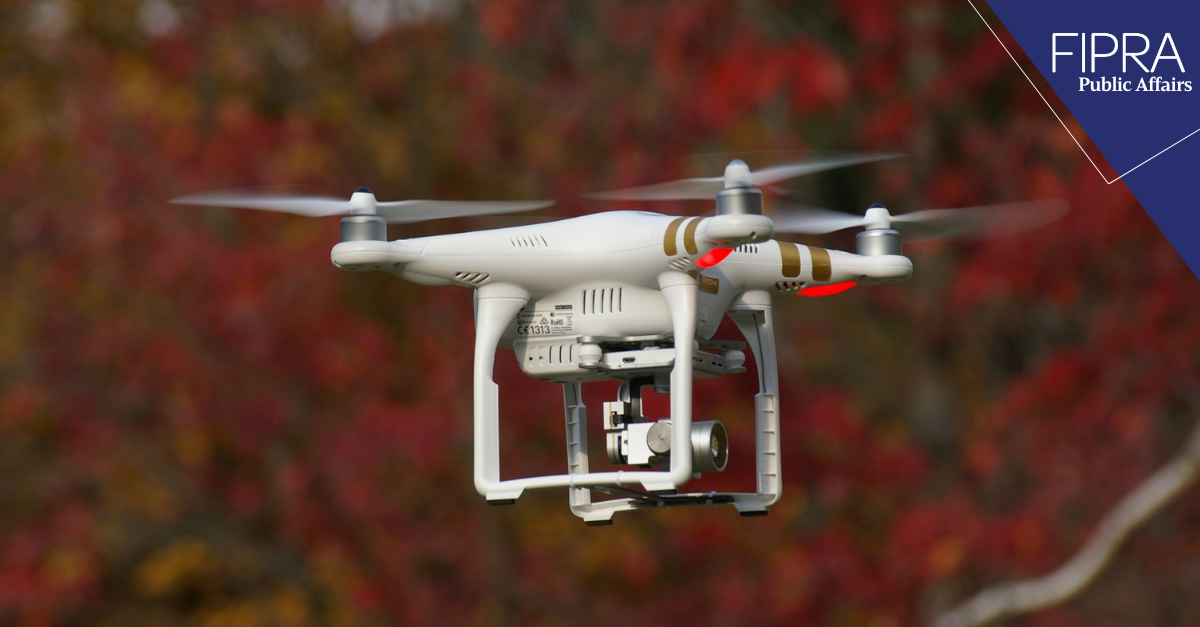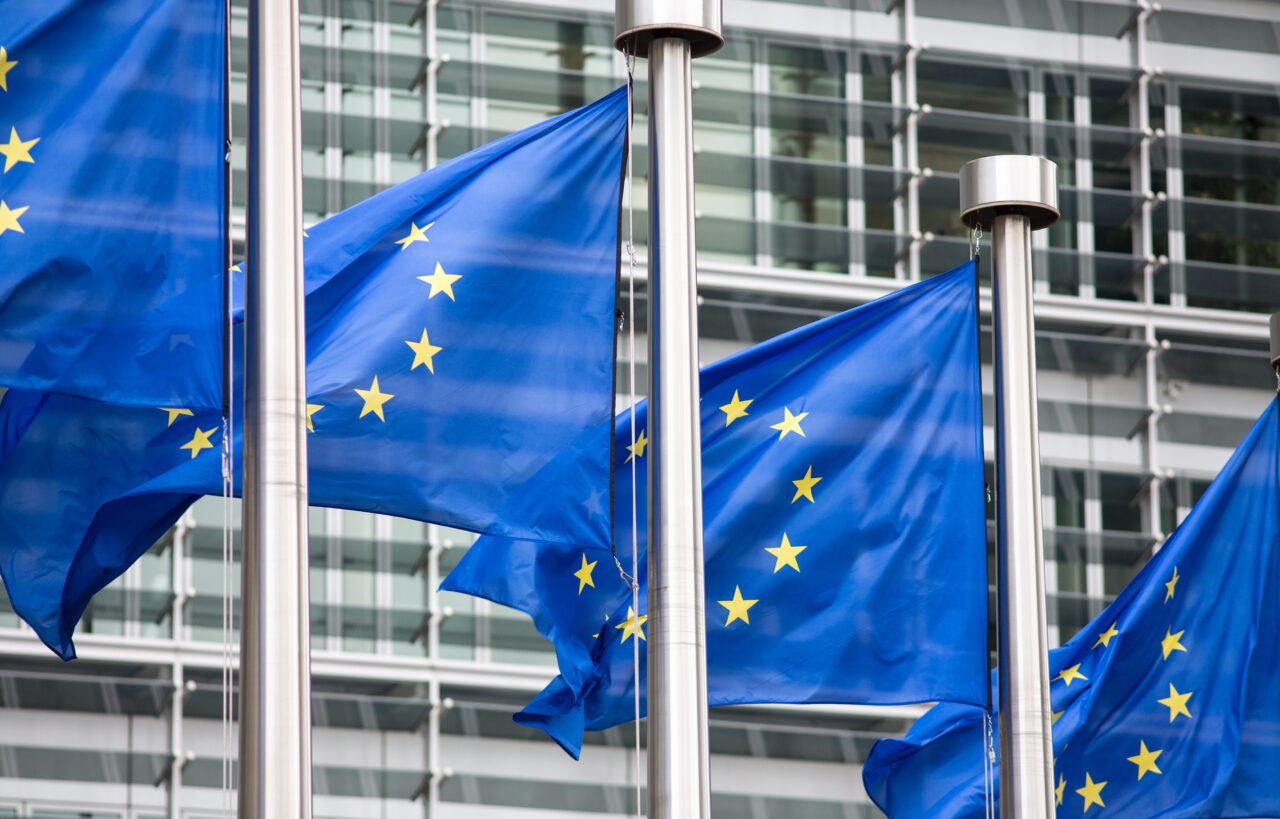policy impact with FIPRA
Drone Strategy 2.0: A vision for the future, actions for today

On 29 November, the European Commission adopted the Drone Strategy 2.0 defining the main policy actions to be undertaken by 2030 to facilitate the deployment of drone technology in Europe.
The file is built around two main priorities: 1) the creation of a competitive drone service market; 2) the strengthening of the EU’s civil, security and defence industry capabilities and synergies.
Following the mandate of the Sustainable and Smart Mobility Strategy, the European Commission has identified nineteen flagship actions in the Drone Strategy to be adopted this decade. These actions cover a wide range of topics, including the facilitation of professional drone operations,
a regulatory framework for urban air mobility (covering rules for drone delivery and air taxi operations), scalability and financing of the drone industry, promotion of civil-military cooperation, counter-drone systems, and cybersecurity.
A study commissioned by the European Union estimates that the drone sector could be worth €14.5 billion by 2030 and create more than 145,000 new jobs in member states.
Fran ferrera
As a digital and all-electric technology, drones contribute to the EU’s digitisation and decarbonisation goals. For example, drones can replace helicopters in search and rescue activities, aerial spraying, or offshore infrastructure inspection. They also open up new possibilities such as increasing sustainability with building inspection, or agricultural productivity with AI-driven crop mapping. A study commissioned by the European Union estimates that the drone sector could be worth €14.5 billion by 2030 and create more than 145,000 new jobs in member states.
This enormous potential has justified the intensive regulatory and standardisation work of the European Commission and the European Aviation Safety Agency (EASA), which has made Europe the region with the most advanced drone regulatory framework in the world.
DRONE STRATEGY 1.0
Given the limited existing national drone regulation, the European Commission has had the opportunity to regulate drones from scratch, facilitating a harmonised approach and creating predictability in the market.
In the first Drone Strategy launched in 2014, the European Commission adopted the EASA Basic Regulation to give the Agency the competence to regulate all drones and drone operations regardless of their weight. Following this mandate, Regulations 2019/945 and 2019/947 were adopted in 2019 to define, respectively, the technical requirements for manufacturing a drone and the operational conditions for flying it. Even before this regulation was published, the European Union started work on a new drone project: the air traffic management system for drones, the so-called U-space, which came into being in April 2021.
With this first Drone Strategy, the European Commission established the regulatory and safety basis for conducting drone operations in Europe. Until now, however, it had mainly focused on drone operations conducted in the Open Category (those that present the lowest risk, are conducted with small drones and maintain visual contact with the aircraft. The Commission understood that it was time to look further over the horizon to allow more complex operations, including those carried out with larger drones for the transport of parcels and passengers.
DRONE STRATEGY 2.0
Regulatory harmonisation. Drone Strategy 2.0 builds a new floor in the drone regulation building while the foundation of Drone Strategy 1.0 is far from consolidated. The goal of creating a European drone ecosystem and a market for drone services will largely depend on the successful implementation of the already adopted regulation.
In Drone Strategy 2.0, the European Commission recognises the challenges of implementing drone regulation in a harmonised way to facilitate the creation of an EU drone market, cross-border operations, and the scalability of drone services. To this end, EASA has already established a working group with Member States to coordinate the implementation of drone regulation and in particular of the U-Space system.
Facilitation of drone operations.
As stated in Drone Strategy 2.0, ‘drones are already used as daily tools in … sectors, such as agriculture, construction, surveillance, film-making, healthcare, medical emergency, energy, environment, public safety and security. Typically carried out with smaller drones and maintaining visual contact with the aircraft, these are the most developed drone applications and the ones that are already creating jobs and wealth.
These “aerial operations”, as defined by Drone Strategy 2.0, still require a lot of political and regulatory attention to facilitate the provision of services with drones. Applying for authorisation for a single flight in an urban area could take more than four months (e.g., a roofer aiming to carry out a building inspection). Authorities need to find ways to reduce the administrative burdens for carrying out drone operations while maintaining the level of safety and security. Aware of this situation, Drone Strategy 2.0 commits to developing new Standard Scenarios (a pre-defined operation where the operator only has to submit a declaration of compliance to the civil aviation authority, instead of applying for an operational authorisation). However, their publication could still take considerable time.
Affordability of drone services.
Certain parts of the airspace will be declared by Member States as U-space, where drone operators will have to use and pay for traffic management systems. While this system is expected to facilitate the process of conducting a complex drone operation in congested environments, the pricing scheme for drone systems remains undefined. The prices for air navigation services that have been disclosed are extremely worrying, as they would exclude most of the population from flying a drone. The Drone Strategy 2.0 recognises that the affordability of drone services is a crucial element for their social acceptance: ‘drone services should be promoted on the basis of inclusiveness, affordable access and sustainability, and not be limited to the “wealthy few”’. However, the strategy falls short of detailing specific actions to address the cost element.
Road to scalability of drone services.
The creation of test centres foreseen in the Drone Strategy 2.0 could help to promote drone operations and make drone services cheaper. In order for these test centres to have a real impact on social acceptance and on the creation of a competitive market for drone services, these test centres should be conceived as real environments where drone operations are facilitated, and drone services are provided to end customers on a daily basis. Several European cities have already launched drone delivery pilot projects, deploying local drone delivery services. The experience in these cities is that, when seeing first-hand the social and economic benefits of drones, social acceptance and demand for drone services considerably increase. These factors incentivise the provision of drone services by new companies, economies of scale, and the consequent reduction in the price of U-space and drone services.
CONCLUSION
With this new strategy, the European Union is taking a new step forward in consolidating its leadership as a global regulator and standard setter in the field of drones. The current state of development of drone regulation would have been unimaginable when the European Commission developed its first Drone Strategy. Now Europe needs to look up, beyond the horizon, to prepare for the next stage of drone technology development with the advent of innovative air mobility. But as it moves into the future, the drone community must ensure that it consolidates every progress, implementing properly the regulations already adopted and making sure that the drone operations and services currently performed are competitive and affordable for drone operators and consumers.
Written by Fran Ferrera; for further information contact him at [email protected]


